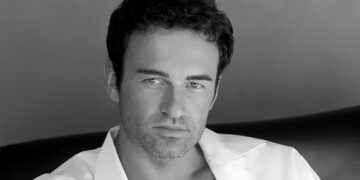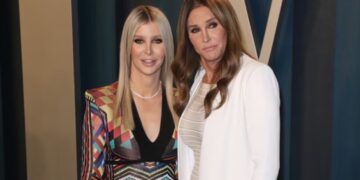You know Keira Knightley as one of the most recognizable British actresses of her generation, with a career that’s spanned historical dramas, romantic comedies, and blockbuster franchises. But despite her incredible success, she recently opened up about a moment early in her career that left her feeling more puzzled than proud. When she received her first Oscar nomination at just 20 years old, she says it didn’t feel quite the way you’d expect. Looking back, she admits the moment was clouded by mixed messages from the public and the press.

An Oscar Nod That Didn’t Come With Confidence
Knightley was nominated for Best Actress at the Academy Awards in 2006 for her role as Elizabeth Bennet in Pride and Prejudice. That performance marked a turning point in her career, showing a deeper, more layered side to her talent. In a new interview with Vanity Fair, she looked back at that nomination during a conversation with her Pride and Prejudice co-star, Rosamund Pike. She revealed that the recognition was deeply confusing at the time.
“It was pretty big for my career,” Knightley explained. “If people will come up to me, it’ll be about that one.” She recalled how her breakthrough had already happened with Pirates of the Caribbean, a massive commercial hit. Still, despite that success, she felt her acting skills were dismissed. “I think in the public consciousness, I was seen as a terrible actress,” she said, reflecting on the harsh reviews she received.
Criticism And Praise Arrived At The Same Time
Knightley went on to describe the unusual contrast she was living through at the time. “I think this was the first one that was a phenomenally big success, but was also critically acclaimed,” she said of Pride and Prejudice. While the film earned her serious recognition, including the Oscar nomination, she was simultaneously being criticized for her role in Pirates of the Caribbean: Dead Man’s Chest, which came out that same year. “I got the worst reviews ever for that,” she said. “And then also being nominated for an Oscar at the same time—it was, in my 21-year-old head, quite confusing.”
This clash between public perception and professional acknowledgment was difficult to process. On one hand, she was achieving career milestones actors dream of. On the other, she felt she was constantly fighting to prove she belonged. That tension between critical acclaim and audience opinion became a theme in the early stages of her career, especially as she balanced roles in both blockbuster hits and prestige dramas.

Keira Knightley’s Rise To Fame Came Fast And Strong
Knightley’s rise began long before Pride and Prejudice earned her Oscar buzz. She had appeared in smaller television roles and indie films throughout the late 1990s, but it was her role in Bend It Like Beckham in 2002 that launched her into the spotlight. The film’s blend of heartfelt storytelling and cultural themes resonated worldwide, introducing her as a fresh face in British cinema.
Then came Pirates of the Caribbean: The Curse of the Black Pearl in 2003, where she starred opposite Johnny Depp and Orlando Bloom. That franchise catapulted her into global fame and turned her into a household name. But even with box office success, the road wasn’t always smooth. Critics often questioned her acting range, and Knightley admits those early years involved a constant push to be taken seriously in the industry.
Stepping Into More Complex Roles And Earning Respect
Following Pride and Prejudice, Knightley continued to build a filmography filled with historical dramas and challenging roles. In 2007, she starred in Atonement, another critically acclaimed film that paired her again with director Joe Wright. Her performance as Cecilia Tallis was widely praised and solidified her place as more than just a commercial actress. It showed her ability to deliver emotional depth and nuance.
She followed that with notable performances in The Duchess, Never Let Me Go, and Anna Karenina. These roles allowed her to step into the shoes of complex, often misunderstood women. Each character gave her an opportunity to showcase her range, and over time, the conversation around her acting shifted. By the time she received her second Oscar nomination in 2015—for Best Supporting Actress in The Imitation Game—she had proven herself repeatedly.

Maintaining A Grounded Perspective Through Fame
Despite her success, Knightley has often spoken about the pressures that came with fame at such a young age. She’s been open about dealing with anxiety and burnout, even taking a break from acting at one point to focus on her mental health. That kind of honesty has only made her more relatable to fans who admire not just her talent but her ability to remain grounded in an often intense industry.
Knightley has also used her platform to speak out on issues such as gender inequality in Hollywood and the unrealistic beauty standards placed on women in film. Her candor and activism have only added to her reputation as someone who doesn’t just perform on screen, but also leads by example off it. Whether she’s stepping onto the red carpet or stepping away from the spotlight, she’s done so on her own terms.
Balancing Fame, Family, And Future Roles
Now in her 40s, Knightley continues to balance her career with her role as a mother and advocate. She remains selective about the roles she takes, choosing characters and stories that speak to her personally. Her more recent work, including Colette and Official Secrets, reflects a maturity and confidence that has evolved over decades of experience.
She may have once felt confused about her early Oscar recognition, but you can see how far she’s come. What started as a moment of uncertainty has become part of a larger journey filled with growth, reinvention, and undeniable talent. Today, Knightley stands not just as someone who earned acclaim, but as someone who’s redefined what that acclaim means on her own terms.
Do you think Keira Knightley has received the recognition she truly deserves for her acting career? Let us know in the comments on Facebook.
Via: Just Jared











